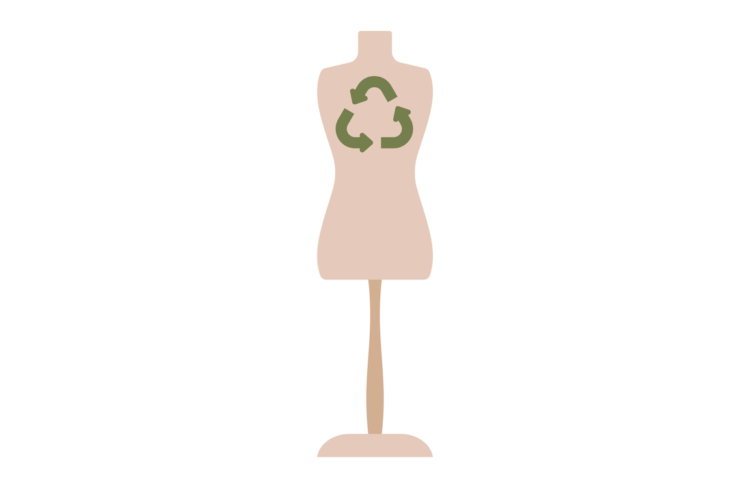Retailers promote sustainable fashion through second-hand clothing and rentals

The circular economy and sustainable fashion are mentioned a lot these days, but it is really nothing new. Used and second-hand markets have been around for many years. What has changed recently is the understanding of what the circular economy means and its growing importance within corporate sustainability initiatives.
People have long bought second-hand items to save money and these essentially self-interested actions have now taken on a more significant sociocultural dimension thanks to the circular economy, which covers a broad range of initiatives, such as minimizing waste and pollution, reducing the consumption of energy and resources, and recycling and reusing rather than disposing of products when they are no longer needed.
Large companies have already incorporated policies that promote sustainability by studying packaging, transport and production. And what about products that are already manufactured and ready for use?
Technology and furniture retailers may have been the first to encourage the reuse of products, but fashion has recently entered the circular economy in a big way.
Generation Z puts sustainability first
The textile industry is one of the largest users of the planet’s resources, generating 10% of the world’s carbon footprint, and it is also one of the most wasteful. In recent years, numerous initiatives have emerged to extend the life of garments by facilitating the purchase, sale or rental of nearly new clothing through websites such as Vinted, Percentil and Ecodicta.
The desire of younger generations, particularly Generation Z, to make purchasing decisions that put sustainability first has not been lost on the big brands, which have joined the initiative by dedicating spaces in their stores to the sale of second-hand clothes.

I’m particularly proud of the work being done by Openbravo customer Kiabi, which has undertaken several sustainability actions under the slogan “Kiabi Acts For A Better World” (Kiabi agit pour un monde meilleur), one of its sustainable fashion programs.
The latest initiative of Kiabi is to launch a 100% second-hand store concept called Kidkanaï. The store offers 1200 meters of floor space in which consumers can purchase a wide range of second-hand items that go beyond its traditional focus on clothing. They can find any type of product they may need for their children from clothing and footwear to toys, books and sports equipment.
At the recent Retail Days Printemps event, Pauline Bachelet, head of second-hand products at Kidkanaï, and I jointly presented a session titled “CSR – Rental or second hand, which should organizations adopt to be sustainable?” which analyzed the creation and implementation of the project.
I was impressed by the strong interest in the theme from the retailers in the audience and Pauline and I had some interesting follow-up discussions about how to make fashion retailing more sustainable.
Sustainable fashion becomes a priority
In fashion retailing we find more and more examples of the circular economy being implemented in different ways, with mainstream High Street retailers setting themselves goals to increase the use of sustainable materials, reduce their carbon footprints, and promote reuse. Inditex, for example, has created a platform called Zara Pre-Owned where customers can buy, sell and repair products of the brand.
The ultimate goal is to extend the life of the garments and, in this direction, the Portuguese company Salsa Jeans launched a jeans repair program so that its customers can send the products, repair them and thus continue to enjoy them without generating more waste.
Another example is Maje and its Seconde Main program, which aims to allow its consumers to experience and live fashion in a different way.
No doubt we will see many more examples from fashion retailers of initiatives that will help contribute to reducing the carbon footprint of the sector, and it is interesting that second-hand clothing, which for so long was ignored by mainstream retailers, is now growing in importance with major fashion brands.
I would just like to give my special thanks to Pauline Bachelet for participating in the Retail Days Printemps event and let’s hope that the Kidkanaï initiative is successful!



